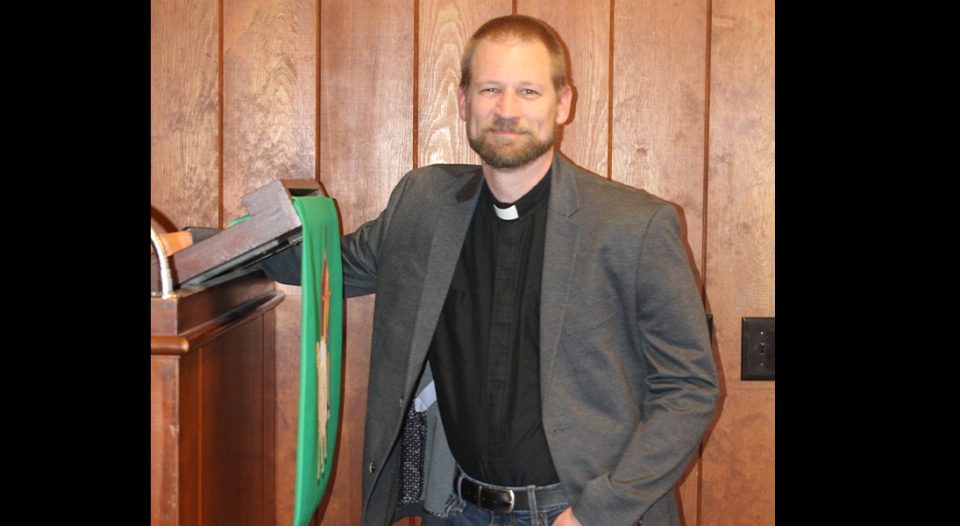Elected bishop of the Western Iowa Synod on June 14, Scott Dalen sees God inviting the church to move forward into new ways to do ministry together.
Dalen, who has served as pastor of Underwood (Iowa) Lutheran Church since 2013, shared with Living Lutheran via email his vision for how God can use those whom God loves and calls good, even in our imperfect goodness. He will take office on Sept. 1 and be installed on Sept. 27.
Living Lutheran: What is your vision for the future of the synod?
Dalen: During the election process at the synod assembly, I focused on two main themes: First, “You are not alone.” Often our congregations exist or operate in silos. We must begin to imagine new ways to embrace being the church together, and that’s going to require us to work and partner together. These conversations have started around different places within Western Iowa, and that’s encouraging. But moving forward, more of our congregations and clusters will need to engage on this front.
The second theme is embracing the reality that “We are here now.” There’s a lot of lament that the golden age of the church is over. I sense a lot of fear as well as longing to “just get back to the way that it was.” But God is inviting us forward. I hope to encourage our congregations to take a deep breath, stop looking over our proverbial shoulders, and start building on the gifts and opportunities that lie in front of us. To be clear, these two themes are definitely connected.
How did you feel when you were elected?
Overwhelmingly terrified. A friend and colleague who has known me for years commented, “He got really pale and was initially at a loss for words.” I knew it was possible, but I did not think it was likely that I would be elected, especially without having been preidentified as a potential nominee. The fact that the assembly, representing the synod, believes that I am qualified for the call to the office of bishop is extraordinarily humbling, and it’s also very daunting.
During my acceptance speech, I made the statement “I hope I do not let you down.” I immediately followed that up by saying the exact same thing to my wife, who is also a pastor within our synod. The feeling in that moment, and now a few weeks later, is a hope to serve well.
What have you learned in your ministry that you might incorporate into your approach to leading the synod?
My approach to ministry is shaped by the idea that I am living alongside the people of the congregation. A wise member of my congregation, [whom] we just buried a few weeks ago, advised me early on, “They don’t care what you know until they know that you care.” It’s always my hope that they know I care. This doesn’t mean that we always agree, or even that we always get along. But every person is a beloved child of God. So I start there.
From a more practical standpoint, I’ve learned how to do ministry within the constraints of a pretty lean budget. I know that I’m entering the highest leadership role in a synod that also must operate with these constraints. I’m realistic about the limitations that this creates, recognizing that sometimes there are programs, activities or ministry focal points that just can’t happen, given the circumstances. And I hope that will translate well into this new setting.
Is there anything else you’d like to share with the church?
To the people of the Western Iowa Synod, I’m humbled and grateful that you are entrusting me with this call to serve as your bishop. I will do my best. But I also ask that you remember this: I am not Jesus. I will make mistakes. So please don’t place me on a pedestal. I’ll knock myself right off there. I’m very aware of just how human I am, and you’ll get to see that too.
But that’s the amazing thing about the church—it’s made up of flawed and imperfect people that God loves and calls good. (You’ll also learn that the Hebrew word tov is my favorite, and I refer to it often). God uses us, imperfectly good as we are. As we look to an unknown future, I’ll remind you that this is going to take all of us. So let’s get to work.




